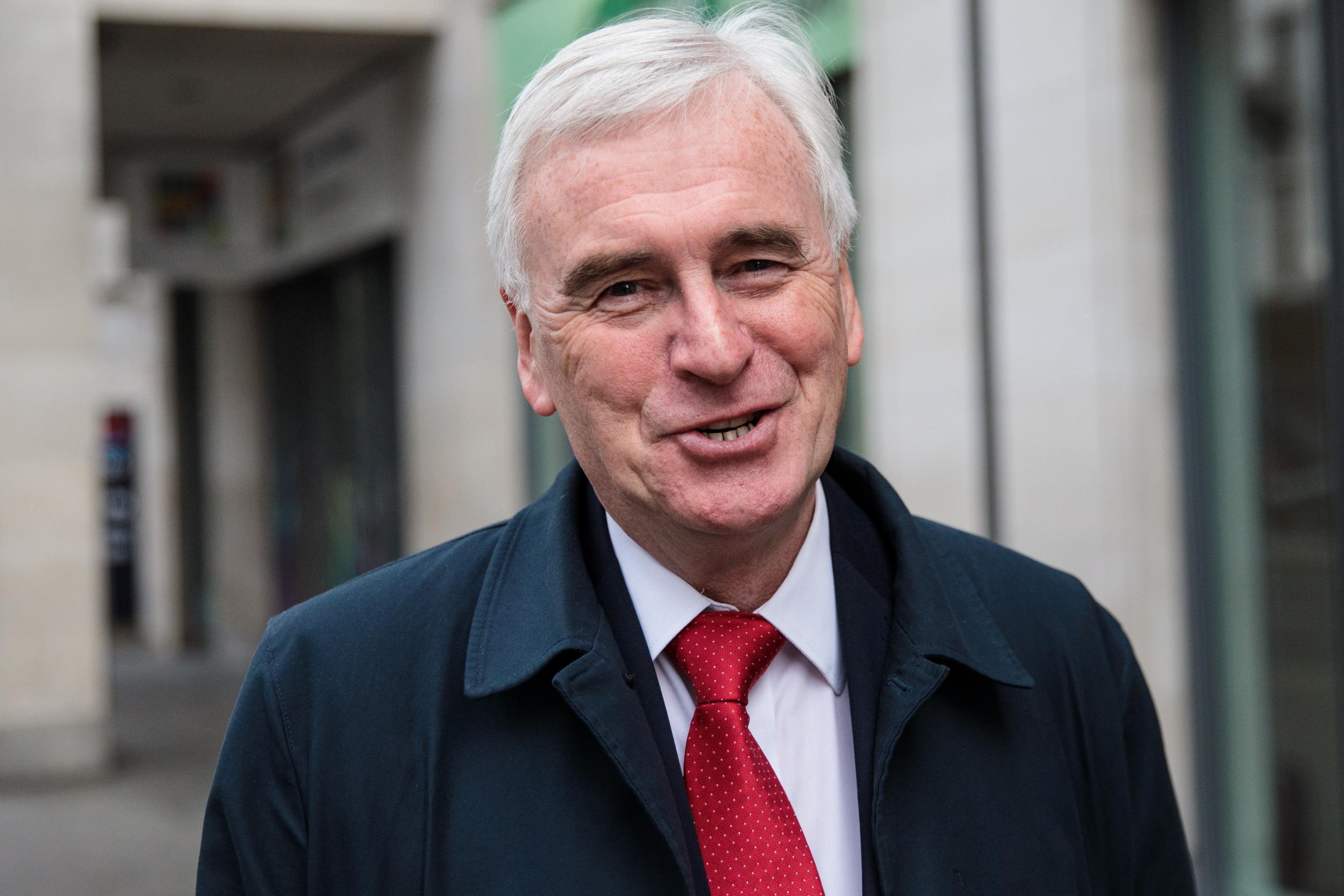Labour's critics are quick to attack John McDonnell over state investment, but they praised the same policies from George Osborne
There are plenty of economic policies in the Opposition's election manifesto that can reasonably be criticised, but higher state investment spending is not one of them


There are some rules of thumb in politics. If you want to keep something secret, say it on the floor of the House of Commons. If you want to publicise something, mark it “secret” and leave it lying around near a photocopier. And if you want people to be misled about what you are proposing, let the right-wing press explain it.
The shadow Chancellor, John McDonnell, first announced plans to spend an additional £250bn over a decade on state investment if Labour wins power in a speech almost a year ago. The surprise would have been if this long-standing pledge had been dropped from the party’s manifesto, not that it made the cut.
But what makes the hyperventilating of the pro-Tory press pack in response to this particular line in the leaked manifesto even more risible is that they appear to have little grasp of how moderate this supposedly ruinous investment promise is.

Public sector net investment in 2017-18 is already set to be £40bn. Labour’s planned increase of around £25bn a year would take that to around £65bn. As a share of GDP that would represent an increase from 2 per cent of GDP to 3 per cent, returning us roughly to where public investment as a share of national income was when George Osborne took an axe to it in his 2010 austerity drive.
We’re also told, in horrified tones by papers such as the Daily Mail and The Sun, that this investment spending would be financed not by extra taxes but by borrowing. The Times points out that Michael Foot’s 1983 manifesto also promised to pay for industrial investment spending by borrowing.
Yet what they fail to note is that George Osborne, in his original fiscal mandate, did exactly this too. The former Chancellor’s 2010 deficit target, which was naturally hailed by the right-wing press for its fiscal rectitude, was to achieve balance on the “current budget” over five years. And the current budget, of course, excludes public sector net investment.
In fact, it’s been the norm for governments to permit borrowing for investment for the very sound economic reason that investment in infrastructure – road repairs, rail electrification projects, new broadband etc – increases the future productive capacity of the economy. This should increase GDP growth rates and hence future tax receipts. In the medium term well-targeted infrastructure spending should pay for itself.
Labour’s state investment pledge also needs to be understood in the wider economic context. Private business investment as a share of national income has been falling since 2000 and in 2016 stood at just 9 per cent of GDP. This decline, in combination with the cuts to public investment since 2010, has dragged total economy-wide investment down to about 17 per cent of GDP. This is below the share of national income spent on investment in other peer countries such as the US (19 per cent), France (22 per cent) and Germany (20 per cent). All of this may well explain, in part, our major national productivity shortfall relative to those countries.
Labour’s proposal to bump up direct state investment, along with its plan to establish a National Investment Bank to lend an additional £250bn over a decade, is a serious response to what the OECD has called the UK’s “historic underspending” on infrastructure. The fact that private investment spending is also under pressure due to Brexit-related uncertainty about the UK’s future trade arrangements is another strong argument for the Government picking up some of the slack.
From abolishing tuition fees, to jacking up corporation tax to 26 per cent, to abolishing zero hours contracts outright there are plenty of economic policies in Labour’s manifesto that can reasonably be criticised. But higher state investment spending is not one of them. Its critics largely discredit themselves.
Join our commenting forum
Join thought-provoking conversations, follow other Independent readers and see their replies
Comments
Bookmark popover
Removed from bookmarks